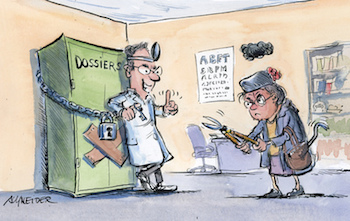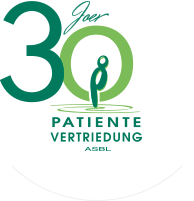
Phishing – Beware of fraudulent emails and SMS messages !!!
24.04.2024We would like to warn you regarding the latest fraudulent emails and SMS messages which are trying to convince you that the CCSS is contacting you.
Be careful !
How to recognize these malicious requests? What are the correct reflexes to adopt to protect yourself?
You'll find here some advices by the Patiente Vertriedung Asbl.
Beware of fraudulent emails
The CCSS never requests the communication of personal information (medical information, bank details, contribution to shipping costs) by e-mail. All messages of this type are “phishing” attempts.
Be careful, this is an online scam, under no circumstances should you respond to it
Be careful ! This online scam technique is widely used.
Scammers seek to obtain your confidential information in order to use it.
You can also check the sender of the email. The name displayed is often not the same as the email address used/displayed to respond.
Beware of fraudulent SMS
There are many SMS frauds, for example:
- ordering a new social security card (CCSS) via a paid online service (shipping costs) while renewing the social security card is completely free
These messages encourage you to click on a link which takes you directly to a questionnaire aimed in particular at collecting your banking or personal details.
Be careful, these are online scams, you should not respond to them or click on the link!
Visit these sites for more information on this hack and how to protect yourself from it:
To report illegal content:
» Fotoen
